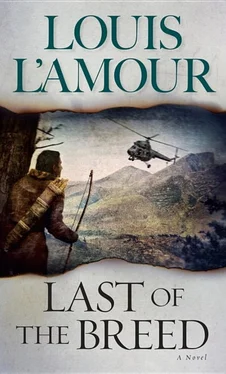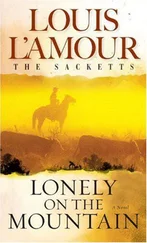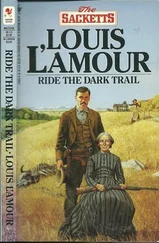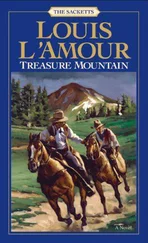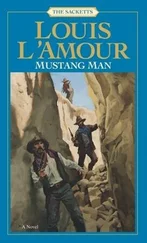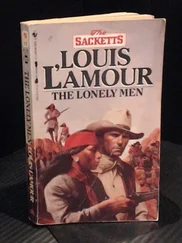Louis L'Amour - Last of the Breed
Здесь есть возможность читать онлайн «Louis L'Amour - Last of the Breed» весь текст электронной книги совершенно бесплатно (целиком полную версию без сокращений). В некоторых случаях можно слушать аудио, скачать через торрент в формате fb2 и присутствует краткое содержание. Город: New York, Год выпуска: 2010, ISBN: 2010, Издательство: Random House Publishing Group, Жанр: Триллер, Историческая проза, Приключения про индейцев, на английском языке. Описание произведения, (предисловие) а так же отзывы посетителей доступны на портале библиотеки ЛибКат.
- Название:Last of the Breed
- Автор:
- Издательство:Random House Publishing Group
- Жанр:
- Год:2010
- Город:New York
- ISBN:978-0-553-89935-1
- Рейтинг книги:3 / 5. Голосов: 1
-
Избранное:Добавить в избранное
- Отзывы:
-
Ваша оценка:
- 60
- 1
- 2
- 3
- 4
- 5
Last of the Breed: краткое содержание, описание и аннотация
Предлагаем к чтению аннотацию, описание, краткое содержание или предисловие (зависит от того, что написал сам автор книги «Last of the Breed»). Если вы не нашли необходимую информацию о книге — напишите в комментариях, мы постараемся отыскать её.
Last of the Breed — читать онлайн бесплатно полную книгу (весь текст) целиком
Ниже представлен текст книги, разбитый по страницам. Система сохранения места последней прочитанной страницы, позволяет с удобством читать онлайн бесплатно книгу «Last of the Breed», без необходимости каждый раз заново искать на чём Вы остановились. Поставьте закладку, и сможете в любой момент перейти на страницу, на которой закончили чтение.
Интервал:
Закладка:
Suvarov was in Nel’kan, which he supposed was less than two hundred miles away to the north and east. He had never been to Nel’kan, but Suvarov was nothing if not thorough. He would have the crossings of the Maya River watched closely.
Now they descended into a burned-over forest. Lightning, no doubt, had started a fire that had burned over several thousand acres. The charred trunks of limbless trees pointed their black fingers at the sky. It was a haunted place, an eerie, lonely place. The soldiers closed in, following Alekhin as if for protection. From time to time their eyes strayed left and right. Once in a while each turned his head to look back to see if they were being followed. The earth was frozen. Snow had fallen in a light film scattered thinly over the charred earth and fallen trees.
There were no animals here nor any birds, only a stark emptiness. It was a place of death. And here the tracks were plain enough. It was as if the Indian had wanted them to see his tracks or had not cared. Did he not know he was followed? The tracks wove a way among the charred logs and blackened trees. Perhaps it was simply that he realized the futility of attempting to hide a trail in such a place.
Oddly, the trail veered west, then east, then north again, and then back to the east. Alekhin stopped, looking angrily around. What was the American trying to do?
Suddenly, he realized and was amused. There were places where the wind or the fire or both had felled great rows of trees, and they were deliberately being led where such trees must be stepped over, climbed over, or crawled under. It was slow, exasperating, and very tiring, and the soldiers were beginning to straggle more and more.
They plodded on. Fearing some ruse, Alekhin stayed to the trail. One of the soldiers, seeing an easier way, instead of climbing over the fallen tree went around the broken-off trunk. Alekhin, glancing back, saw it happen.
The soldier was the last in line, and taking what seemed the easier way, he had just stepped past the base of the broken-off tree when he tripped and fell.
As he fell he gave off a great, choking cry, and the other soldiers started to run toward him.
“No!” Alekhin shouted. “No! No!”
Unheeding, they rushed to their fallen comrade, and suddenly another tripped and fell. He cried out, then scrambled up, bleeding. His comrades had stopped, staring at him.
There was a great, bloody gash in the side of his neck, and he was gripping it with his hands to stop the blood.
“Be careful!” Alekhin warned. “There are traps!”
Stepping with caution, they approached the injured man and began to apply crude first aid.
Alekhin went around him to the soldier who had fallen first. He had tripped over a root tied across the path, and when he fell a sharpened wooden stake had been waiting for him. Hurrying around the trunk of the broken tree, he had tripped, and the stake had gone right through him. The man was gasping his last when Alekhin stopped beside him.
In anticipation that his fall would attract others, another ankle-high root had been tied carefully. The second man had been stabbed in the side of the neck by the sharpened stake. An inch or two further to the side and it would have pierced his throat.
Alekhin was disgusted. Four men had been sent with him. Now one of them was dead and another injured beyond any use, and he must be cared for by a third. Somehow, he must get help. He did not know the full range of the radio he carried, but he attempted a call.
Such a trap was a gamble, of course, yet the American knew he was being followed. Perhaps there had been other traps, further back, which they had avoided simply by accident. Alekhin was angry with himself. He should have been more careful. He knew the sort of man he was pursuing.
Or did he?
His calls were getting no response. “Make a litter,” he said. “Get two strong poles and get the coat from the dead man. Your comrade must be carried.”
The two soldiers looked at him, staring. “How far?” one asked.
“As far as need be,” Alekhin replied. “As far as you would wish to be carried if it were you.”
After a minute he said, “There is a village. It is about twenty miles.”
“Twenty miles!”
“Perhaps further. We’ve wasted enough time. Move!”
Alekhin consulted his map. The village was Mar-Kyuyel, and it was on a road. He looked at the wounded man. He looked bad. He had lost much blood before the bleeding had been eased by cloth pads. Next time he would have a man along who understood first aid.
Next time? His face was somber. He did not care for these soldiers, but he hated to be defeated, to be hampered. He had a feeling they would lose more men before the American was found and captured.
The worst of it was that it would be Suvarov who got him, and he, Alekhin, wanted to capture this one.
They loaded the man on the crude stretcher and started to walk. Alekhin waited, thinking. Should he go with them or continue the search alone?
They would want a report. They always wanted a report. Everything came second to the paperwork these days. Bureaucratic minds could not comprehend unless it was written out for them or drawn in pictures. Besides, who knew what these soldiers would do if someone did not watch them?
Colonel Zamatev was at his desk when word reached him. Another man dead and one seriously injured.
At least Major Makatozi was not in Magadan. It was a relief to know that somehow Shepilov was not ahead of him.
Yet he still might be. Makatozi might be headed for Magadan and Shepilov might know why. It was on the sea. Suppose the CIA planned to steal him away from there?
Unlikely, but possible. Yet how could it be done? Suppose the American had managed to communicate with his own people?
Just suppose it could have been done? Suppose something had been set up and Shepilov knew of it? If so, Shepilov might capture them all, circumvent him completely, and walk off with all the prizes. Why else would he go to Magadan?
Nobody wanted to go to Magadan. Nobody went there unless they must. Yet Shepilov had gone of his own free will. Surely, he knew something and wanted to be right where he could claim all the credit, personally.
Kyra was there, and Kyra would find out.
Could he trust Kyra?
He sat back in his chair and tried to order his thinking, He liked everything lined up, everything neat and clear.
Fact one: Shepilov never moved unless he had to. He preferred comfort. And Shepilov had gone to Magadan.
Fact two: Makatozi was somewhere north of the Uchur, moving in the general direction of Magadan.
Fact three: headed in that direction, Makatozi would have to escape by sea, and Magadan was a seaport.
Fact four: the Soviet buffer zone was supposed to be impenetrable, but suppose the Americans used one of their new stealth planes? It would be a test, and if they brought it off, what a coup!
Fact five: if such a thing happened, heads would roll, and his would be one of the first. If Shepilov were in Magadan and the CIA succeeded in getting Makatozi out of the country, Shepilov’s head would roll.
But Shepilov never left himself in a vulnerable position. If he was in Magadan, he was there for a reason and he was sure he would succeed.
Kyra would call in, but Kyra’s line would certainly be bugged. Shepilov would certainly know she was in the city. In fact, he had probably been informed when she had left town to fly there.
Suvarov. He must be in touch with Suvarov. If they could get the American before he reached Magadan, then they had no further worries.
He got up from his desk and paced the floor. There was no way he could have planes flying back and forth over so many miles of country looking for one man. But what if that man were confined to a much smaller area, like that between where Alekhin’s men had been attacked and where Suvarov was?
Читать дальшеИнтервал:
Закладка:
Похожие книги на «Last of the Breed»
Представляем Вашему вниманию похожие книги на «Last of the Breed» списком для выбора. Мы отобрали схожую по названию и смыслу литературу в надежде предоставить читателям больше вариантов отыскать новые, интересные, ещё непрочитанные произведения.
Обсуждение, отзывы о книге «Last of the Breed» и просто собственные мнения читателей. Оставьте ваши комментарии, напишите, что Вы думаете о произведении, его смысле или главных героях. Укажите что конкретно понравилось, а что нет, и почему Вы так считаете.
